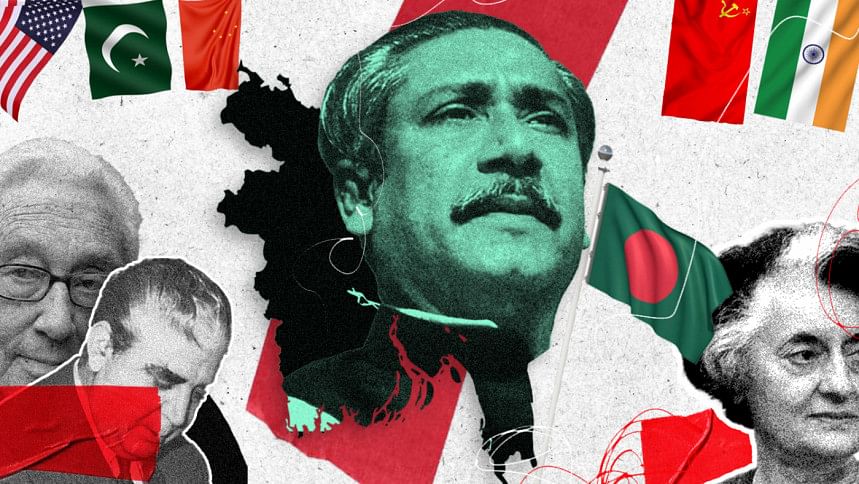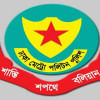'The Liberation War became a centre of big power rivalry'

M Humayun Kabir, former Bangladesh ambassador to the US, discusses the geopolitical history of Bangladesh's Liberation War and the lessons we can learn from it, in an exclusive interview with Ramisa Rob of The Daily Star.
Can you describe the broader geopolitical conditions, such as the Cold War, that surrounded the Liberation War of Bangladesh?
There were three aspects of this. First, the prime foundation, as we all know, was that the West Pakistani leadership did not respect the people's verdict to transfer power to the Awami League. This was due to the dysfunctionality of Pakistan as a state, and it was bound to have some vibrations regionally. When we wanted our rightful democratic rights, they responded with military action and we resisted—which is when the snowball effects started, and it became a larger regional issue, then a global issue, even playing out in the United Nations. If we look at the geopolitics, it started as a geopolitical convulsion within Pakistan and now Bangladesh, and then it adopted the characteristic of a regional dimension. For example, we know that Pakistan and India had philosophical disagreements, strategic discordance; there was also a predominant convergence between the aspirations of Bangladeshis, who wanted their independence, and the Indian strategic objectives in the South Asian landscape. But it's important to note that our aspirations and fight for freedom are the main components that led to the geopolitical vibrations.
At the global level, there was a coincidence that precipitated waves. The US wanted to extricate itself from the Vietnam War; in 1969, President Nixon had started withdrawing from Vietnam. In order to accomplish this goal, the US needed China, which shared a border with Vietnam. They also wanted to cultivate another relationship, a new pole with China, to counter their main arch-rival, the Soviet Union. And China, at the time, had an ambition to become a global power but they were not recognised, particularly at the UN Security Council. So China needed US blessing in that regard. Within that process, Pakistan acted as a go-between, mediating from the middle. So for both the US and China, it was a strategic issue. For us, and India, on the other hand, it was a humanitarian issue.
Now, to capture the full picture, I should also say that when China and the US were getting closer, India relinquished its non-alignment position in the Cold War, and signed a treaty of peace, friendship and cooperation with the Soviet Union in August 1971. As a result, on the one hand, we saw Pakistan, China and the US form one axis, and India, Bangladesh and the Soviet Union form the other. The Liberation War became a part of great power rivalry. It also went up to the UNSC, and on December 14, 1971, there was a resolution for a ceasefire which the Soviet Union vetoed, which in my opinion was very critical. Had there been a ceasefire, I think our independence would have been delayed, even though Indian troops were in Bangladesh and we were fighting with all our might. But up until the middle of December, the global geopolitics was playing with such an intensity, that the fate of Bangladesh was hanging by a thread. Our capacity at that point was still limited.
Bangladesh was almost like a test case of global geopolitical competition at the time. Many elements did align in our favour, which is why we realistically could achieve independence. In my view, the Liberation War of Bangladesh was a ground where the height of geopolitics in the Cold War was played out.
I wanted to address a bit about the role of the US, where President Nixon and Henry Kissinger disregarded the genocide that was going on, which was informed by Archer Blood, US consul general to Dhaka at the time. Could you expand on the US role?
What Archer Blood had said was right: there was a systematic genocide going on here. When we asked for our democratic rights, it was a peaceful movement, and when Pakistan responded militarily, we had the right to defend ourselves. Kissinger and Nixon looked at it solely from a strategic perspective, with the main driver of their policy process being the Cold War. They provided arms to the Pakistan Army, which served their strategic dimensions. They knew very well of the atrocities that were going on. Beyond the government, US Congress and the civil society in the US, however, were vocal about the humanitarian dimensions. After our Liberation War, our relationship with the US quickly picked up. When I was in the US, I spoke to many officials and they acknowledged that they had major oversight to our struggles. In 1987, I had the opportunity to discuss with top military officials and diplomats at the time who were involved, and they acknowledged their mistake and admitted that their focus, as a global superpower, was not in the humanitarian interests of the people of Bangladesh.

Could you expand a bit more about China's role—what was the nature of their relationship with West Pakistan and Bangladesh?
From my discussions with senior diplomats, I can say there was uneasiness in China regarding the Liberation War. They did try to convince West Pakistan to politically resolve what was happening. But here also, my sense is that China's decision-making process was driven more by their national interests and priorities, to secure and restore their legitimate place in the global stage. They knew they couldn't get that without the support or acquiescence of the US, so they were ready to work with them. This becomes even clearer if you look at the timeline—the UN General Assembly passed the resolution to legitimise China's seat on October 25, 1971.
Pakistan and China shared a friendly relationship and China was beholden to Pakistan, which hovered over their relationship with Bangladesh till 1975, when they finally recognised us as a sovereign nation. Regarding the nature of support to West Pakistan, it was mostly on the diplomatic front, from my knowledge. As a result of the Pakistani contribution in bringing the US and China together, neither of these countries stood on the right side of history at the time.
How did Bangladesh, with India's support, overcome this alliance of US, China and Pakistan?
I want to say emphatically, the people of Bangladesh were the main driver of the whole process. It was our war, our fire, that galvanised Indian support. Indira Gandhi as a leader did play a pivotal role. When India realised that China, Pakistan and the US were forming a front, they needed to strengthen themselves. She went to Moscow, and bolstered India's relationship with the Soviet Union to create a counterbalance. For Bangladeshis on the other hand, our focus was independence, regardless of what happened in the outside world.
How did Bangladesh establish itself and forge relationships with all these nations after the war?
Right after independence, the Bangladesh government understood that though we won this war with the help of India and diplomatic support of the Soviet Union, establishing ourselves as a state in the global stage required the financial support of Western world, which culminated in Bangabandhu Sheikh Mujibur Rahman visiting Washington in 1974.
There were several, very difficult odds that the government faced. Since 1945, no established state was broken before our Liberation War. It was consequently difficult for many countries to accept this. Secondly, Pakistan launched a propaganda campaign that an important Muslim country had now been battered. The Muslim ummah, as they call it, looked at it from that negative perspective. These were the conceptual and diplomatic challenges that we faced as a newly independent nation. Even during the Liberation War, there was a prevailing challenge for the provisional government of Bangladesh at the time, to convey the message to the international community that we were defending ourselves, that we did not provoke the attack on Pakistan—rather, it was the other way around. The whole country was devastated by military oppression.
When we became independent, it was Bangabandhu's unmatched leadership and the competence of a good number of excellent diplomats that brought about our credentials as an independent country. Bangabandhu had to overcome the sensitivity in Muslim countries that a major Muslim country had been broken. He undoubtedly played the diplomatic cards very well. In 1973, when the Yom Kippur War broke out between Israel and a coalition of Arab countries led by Egypt and Syria, Bangabandhu quietly sent a medical team to Egypt. He excelled in communicating that our independence was not at all about Islam, and that it was about the fight of oppressed people who were victimised by grave atrocities. For example, in 1974, the Islamic conference was taking place in Lahore—a major dilemma for Bangladesh. To overcome this, Bangabandhu gave Pakistan a condition to recognise Bangladesh. Here, I must address the immensely courageous diplomacy that Bangabandhu dexterously upheld. India did not like that he went and attended. But by doing so, he consolidated Bangladesh's place within the Muslim countries. In September 1974, Bangladesh also became a member of the UN General Assembly.
On this Independence Day, what historical lessons should Bangladesh and the rest of the world reflect on?
It is definitely very important to reflect on the genocide in Bangladesh and assess the complex geopolitical history. Despite the fact that it was one of the worst genocides committed in the 20th century, the international community is yet to grapple with the intensity and depth of what happened. I believe this comes from a lack of serious diplomacy that is required to bring traction to the valid point that it should be recognised. In Bangladesh, we have to accept that in order to be recognised as a geopolitical player, our aspirations have to be aligned with the international community. We are more likely to become a victim of geopolitics, rather than a key player, the same as we were in 1971. We have to find a creative way to overcome our deficits in this regard. But we have all the elements within ourselves. Practising democracy, human rights, and social egalitarianism—all the principles upon which our country was founded—will give us that strength to establish ourselves as a nation that outsiders will listen to. The three million people who sacrificed their lives are all common people, and we should remember that. We should always be respectful to their sacrifice. I always believed that Bangladesh would be stronger if we allowed ourselves to have the same strength we had in 1971: allowing our own people to speak their voice.
Follow The Daily Star Opinion on Facebook for the latest opinions, commentaries and analyses by experts and professionals. To contribute your article or letter to The Daily Star Opinion, see our guidelines for submission.

 For all latest news, follow The Daily Star's Google News channel.
For all latest news, follow The Daily Star's Google News channel. 











Comments